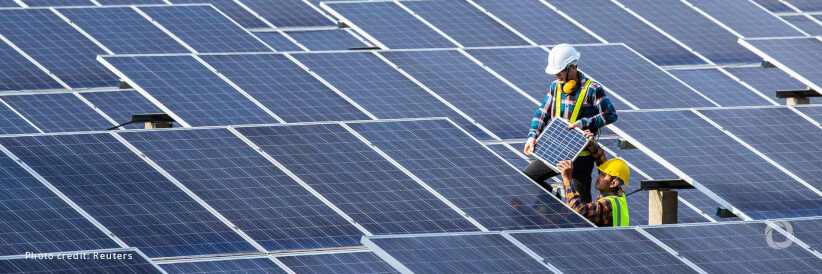Science, technology, and innovation (STI) tools are indispensable in tackling pressing challenges such as climate change, which need global solutions. That’s the message from UNCTAD ahead of the 26th session of the Commission on Science and Technology for Development (CSTD), slated for 27 to 31 March in Geneva and online. UNCTAD provides substantive support to the CSTD.
The tools include green technologies – goods and services with smaller carbon footprints – that present new opportunities.
“These opportunities not only offer the chance to build resilience and mitigate climate disaster but also to spur economic and technological development,” said UNCTAD Secretary-General Rebeca Grynspan.
The CSTD session will bring together government ministers, policymakers, international organizations, and leading experts. They will discuss two main themes:
”Technology and innovation for cleaner and more productive competitive production” and “Ensuring safe water and sanitation for all”.
Participants will take stock of the progress made towards implementing the outcomes of the World Summit on the Information Society (WSIS) regionally and internationally. They will also discuss ongoing STI policy reviews by UNCTAD and cooperation projects to facilitate access to key technologies in developing countries.
A conversation with ‘great minds’
The event will feature “a conversation with great minds”, a special segment with two world-class scientists, focused on prioritizing research and development for climate action. They are Hiroshi Amano, who won the 2014 Nobel Prize in Physics for inventing efficient light-emitting diodes, or LEDs, and Karen Scrivener, a material chemist known for her pioneering work in decarbonizing cement.
Need to close the green tech gap
The meeting will underline the urgent need for international support for developing countries to benefit more from green technologies such as electric vehicles, and solar and wind energy.
UNCTAD’s Technology and Innovation Report 2023 estimates that such technologies will quadruple their market value to $2.1 trillion by 2030. Notably, market revenues for electric vehicles could increase five times to reach $824 billion, up from $163 billion.
Meanwhile, frontier technologies like artificial intelligence and the Internet of Things can spur cleaner and more competitive production, help diversify economies, create higher-wage jobs, and catalyze economic growth, while curbing climate change. As developed countries currently reap most of the economic benefits of green technologies, international solidarity is critical for developing countries to catch up.
“As developing countries respond to the interconnected crises, strategic, long-term actions to build innovation and technological capabilities will be key to achieving sustainable economic growth and resilience to future shocks. They need both domestic policies and international cooperation to reap the benefits of the current technological revolution,” said Shamika N. Sirimanne, UNCTAD’s technology and logistics director, who also heads the CSTD Secretariat.
UN focal point for STI development
The CSTD is the UN’s “torch-bearer and focal point for science, technology, and innovation for development.” It analyses how STI, including emerging and disruptive technologies, can accelerate the 2030 Agenda for Sustainable Development for everyone, everywhere.
It’s a forum for strategic planning and knowledge-sharing, providing foresight about critical STI trends in key sectors with an impact on the economy, environment, and societies.

